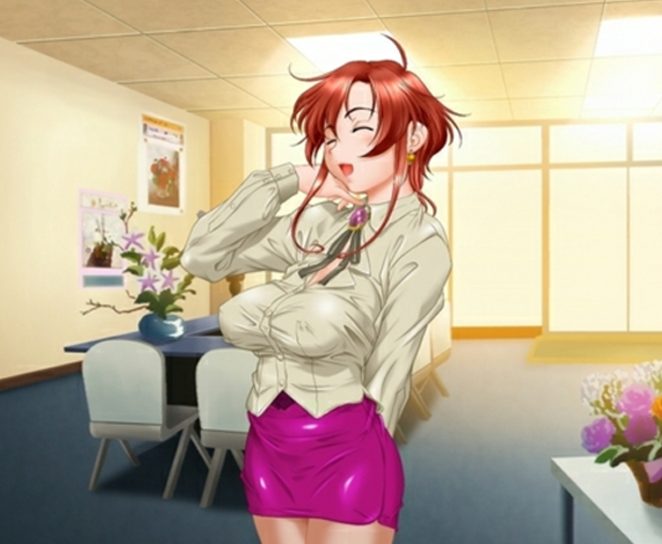Visual Novels: So much representation, so many terrible boobs

- October 31, 2018
Jess Zammit
As technology grows and changes—and the possibilities for what games can ‘be’ expand—new genres are being identified and explored by game creators. Yet one genre continues to dominate the queer gaming world, for better or for worse: visual novels. These much-debated games allow players to dispense with action (mostly) and closely follow a narrative, aiming to give the player a greater chance to relate to the featured characters—sometimes even stepping into their shoes—and affecting the narrative’s outcome or direction. They’re like adult versions of choose-your-own-adventure novels with pictures and they’re often used by queer developers to tell personal stories and explore identity. What’s not to like? Well, there’s a reason I said ‘for better or worse’, and it’s all about disproportionately sized boobs.
But let’s start with some hard facts. At the time of publishing, the Represent Me database includes 1,453 individual games: of these, 430 are visual novels, meaning almost a third (29.59%) of all games featuring queer content are from this genre. Why so many? It would seem that this number (like the aforementioned boobs that I’ll talk about again in a moment) is disproportionately large, but there are some possible answers. Because visual novels inherently lend themselves to thoughtfully telling stories and often make players privy to characters’ thoughts, they’re an obvious choice for queer developers who want to present deeply personal queer experiences.
The tools for creating visual novels are accessible to developers of all skill levels. Programs like Ren’Py allow for more people (including queer people) to tell their own (often autobiographical) stories with greater ease, removing some of the barriers preventing them from creating larger projects. With the advent of platforms like itch.io that celebrate indie game experiences, these games can be released to the world and cute queer love stories can be made available to everyone—instead of just those that make it to the Steam store. ‘But wait!’ you might say. ‘I’ve seen plenty of lesbian visual novels on Steam—surely that’s a good thing?!’ Well, yes and no. Mostly no, at this point.
And here’s where the boobs come in.
The unfortunate truth about many of the titles in the Steam store featuring lesbian or other same-sex feminine characters is that they weren’t made by, or for, lesbians (or women-loving women). Instead of telling an earnest and nuanced story about realistic characters, their plots revolve around whatever will allow for the most boob screentime. With the male gaze as a core game design principle, many of these games are exploitative and sexualised—which helps them get the exposure and the sales to crowd out other, less ‘sexy’ games. A game about women who wear poor excuses for armour and roll around together in chocolate baths isn’t good lesbian representation: it’s blatant sexualisation and it’s giving the genre a bad name. Not everything needs to be about the boobs… the huge, unrealistic, anatomically impossible or physics-defying boobs.
I think it’s important to clarify a point: I don’t hate visual novels. I think that they are a great medium to represent marginalised identities and enable marginalised creators. But it feels like visual novels are being misused by creators who aren’t interested in presenting earnest, authentic queer experiences—and are instead focused on titillation. A genre that comprises so much of the overall lesbian representation in queer games should be something that can be celebrated. It needs to change.
And, if it can’t change completely, can someone at least help us all out by telling the creators of these games what actual boobs look like?
Jess Zammit is a games journalist and a director of not-for-profit organisation Represent Me. Combining her experience as a bisexual woman with her background and honours degree in cognitive psychology and statistics, she is a passionate advocate for positive representation of queer characters and stories and mental health issues in games and the broader games industry.
